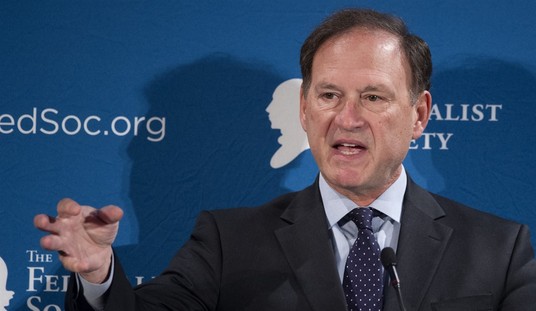Just before the holidays, House Republican leaders released their proposed “rules” package for the next Congress. It will be considered first on January 4th by House Republicans alone, and then thereafter by the full House of Representatives. Since the House is not a continuing body (like the Senate), it must adopt a new set of rules and procedures every two years when a new Congress is sworn in. Normally, they take the existing rules and make a few house-keeping tweaks. This time Republicans are attempting to write some real checks into their rules to help limit federal spending. I finally had a chance to read through the full package of reforms, and it does some nice things. Nothing groundbreaking, but some very important reforms nonetheless. Why is any of this important? As Rep. John Dingell once said, “If I let you write substance and you let me write procedure, I’ll screw you every time.” In short, procedure dictates policy.
A lot of the public attention has focused on the requirement that all new bills include a statement that identifies the Constitutional authority permitting Congress to act in that area of law. Some have called this requirement “cosmetic,” but I don’t think that is fair. It’s true that liberals can skirt this requirement by improperly citing the general welfare clause or some other misconstrued provision of the Constitution, but this is about the only thing that Republicans could do to remind each Member of Congress of their oath to legislate within the bounds of the Constitution and to force a debate on the Constitutional merits of every bill before it can be passed. However, the strength of the package lies in its fiscal reforms and budgetary checks. Here are some of the highlights. Read more.
House Republicans want to institute a “cut-as-you-go” requirement to basically serve as a cap on “direct” spending (and replace the liberal “pay-as-you-go” version). Direct spending is the more permanent non-appropriated spending that is more difficult to control. This is exactly the sort of anti-spending restriction that conservatives have long proposed and ought to be placed in House Rules to slow future spending campaigns more often. Such a cap would have made it significantly more difficult for Republicans in 2003 to pass the Medicare Prescription drug benefit. This spending cap is married to another restriction against long-term spending to ensure that legislators can’t simply avoid the “cut-as-you-go” requirement by pushing spending into the future.
Republicans also plan to get rid of the Gephardt rule, which allows legislators to avoid taking difficult votes on raising the debt limit, ensure that the special deficit-cutting reconciliation process cannot be used to create new programs or otherwise increase spending without 60 votes in the Senate (like with Obamacare), and allow for spending reduction amendments during the appropriations process to be used to decrease the decificit (this language needs to be strengthened to ensure that it doesn’t allow easy offsets to be freed up for additional spending). There are also some nice transparency reforms, such as the requirement that bills be made publicly available for three days and the requirement that committees put bills and amendments adopted in committee online after 24 hours.
One other major reform needs to be addressed, because it is proving already to be controversial with big spenders. House Republicans are attempting to repeal a requirement that mandates that yearly transportation appropriations bill comport with the previous five-year highway authorization bill. In other words, if Congress has passed a five-year highway bill and it proves to be too expensive—perhaps, as in recent years, because gas tax revenues are not keeping pace with highway spending—and the program is headed for a bailout, then this would allow Congress to adjust the spending downward during the annual appropriations process. It is a very important reform, but already the highway funding coalition (which includes groups as diverse as the Chamber of Commerce to labor unions) is pushing back. House Republicans need to hold their ground.
If there is a major vulnerability in the package, it is that it does not adequately address the issue of whether these budgetary restrictions can be waived by Republican leaders. When Republicans last controlled the House, it was common practice for Republican leaders to waive any points of order against spending bills, and then have their rank and file argue that they were merely voting on a procedural vote without substance. The various House points of order need procedural protection, by requiring a special supermajority vote to ever waive a budget point of order, similar to those provided in the Senate. This is a major improvement that could be added by amendment when House Republicans consider the package on January 4th.
Another reform would be to mandate that any bill that is going to be considered on the House floor be accompanied with a formal cost estimate from the Congressional Budget Office. I’m not as concerned about the major bills lacking a score (they normally do), but it’s the host of smaller bills that receive cursory consideration on the suspension calendar that worry me. In addition, the rules package should require that there be actual, recorded votes for all bills that cost a certain amount of money, and there should be a mandate against creating new programs. Too many times, these bills get approved quickly (by a voice vote) on the suspension calendar without forcing Members to fully consider, and be up front with, what they’re voting on. This would have a dramatic change on the culture of spending in Congress.
Again, there is nothing in the rules package that is groundbreaking in that the package does not attempt a wholesale revision of how Congress operates or spends taxpayer dollars. But the package includes several important reforms, many of which conservatives have been fighting over the years for. It is a nice first step by Republican Leaders, and rank-and-file Republican would be wise to resist efforts to water it down and look for ways to improve upon it.











Join the conversation as a VIP Member